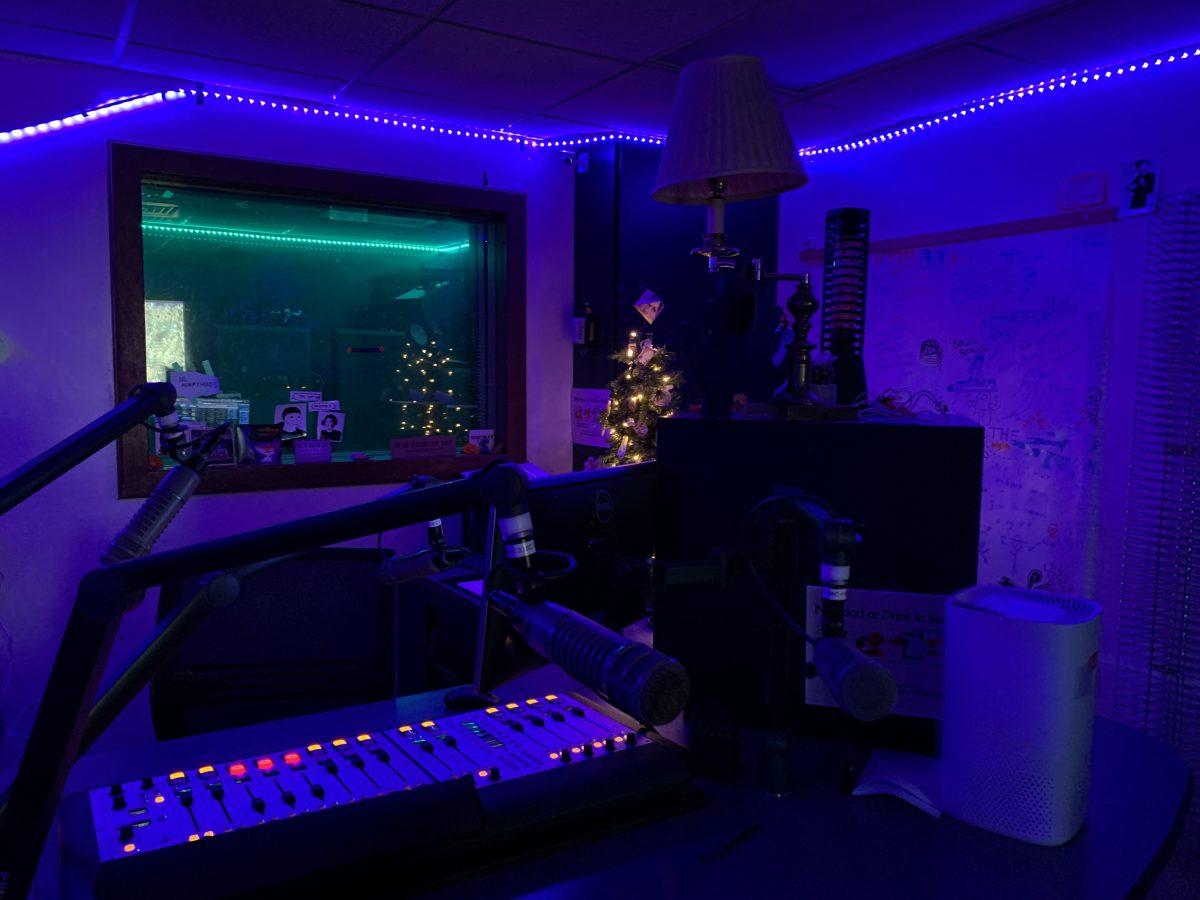WKNC is NC State’s student-run radio, broadcasting throughout the community at 88.1 FM. Although a fair amount of listeners are students, one of WKNC’s largest audiences comes from those incarcerated at Central Prison in Raleigh.
As a result, many DJs have formed a relationship with people jailed in Central Prison. These DJs include Uncle Paul, host of Friday Night Request Rock and Penitentiary Rock, and Rainbow Riot, host of the Riot Hours.
Rainbow Riot, aka Rosie Rose, a fourth-year studying communication and cognitive science, receives snail mail from prisoners on a weekly basis, with topics ranging from praise of her show, requests and information about themselves. Rose’s favorite letters are the ones that go beyond just requests.
“I really love receiving the more personal ones, especially the ones that tell me a lot about them because obviously I know that they’re not just their inmate number,” Rose said. “I love hearing their names, telling me why they like the kind of music that they like, even — rather narcissistically — why they enjoy the show. … They’re always a pleasure to read, and I do keep all of them. I have all of them in a file folder up in my room, and I just keep adding to it.”
While Rose doesn’t get the chance to respond to letters, Uncle Paul, aka Paul Williams, an NC State alum, reads them live on air during his show.
“Most of the time, it’s messages to other people,” Williams said. “It’s often messages to their loved ones or people outside, to their family members, to their spouses, to their children, things like that.”
The letters read on air, according to Williams, also act as communication between prisoners.
“It’s kind of like a forum,” Williams said. “You get up in front of a microphone and say something to everyone even though they’re not there to say it, I’m saying it for them by reading the letter. So some of them take it as an opportunity to say ‘Hey, look at me,’ and pound their chest a little bit, say ‘Hey, I’m, I’m important. I’m tough, I’m mean, I’m sexy.’ Some of them turn it into love connections.”
Additionally, prisoners write to talk about the conditions of their incarceration.
“Some people complain, especially if the women from the women’s prison start getting involved too,” Williams said. “Some of them of course want help for their situation. They want to either improve conditions at the prison or help from people who can get them out of prison through the court system or the legal system.”
Friday Night Request Rock started in the ‘80s and was revived in the ‘90s during Williams’ undergrad, and soon a majority of the rock requests came from Central Prison.
“A lot of people would call the station by phone, and we would get a lot of collect calls from the prison,” Williams said. “We wouldn’t accept the calls. That was the University’s policy. But instead of saying like ‘You have a collect call from “state your name,”’ you would get things like, ‘You have a collect call from Metallica, “Master of Puppets,”’ or something like that, where they would say that band and the song that they wanted to hear, and then they would just hang up and so we would get the request that way.”
Williams came back to WKNC in the 2000s and began to receive letters from inmates remembering his show from a decade before — so he brought Penitentiary Rock back.
According to Williams, some prisoners couldn’t make calls and began to write their requests to the station instead.
“We started reading some of the letters and then it kind of caught on a little bit,” Williams said. “We started getting more letters, and so we wanted to make it a regular feature on the show. And this guy’s idea was to have the prisoners choose the name of the show. So we had a contest, and the name that got the most votes was Penitentiary Rock.”
Williams said his show is not intended to dehumanize the incarcerated.
“It’s just really making sure that when we’re reading the letters, that if someone doesn’t know the right band or the right song that they’re trying to request, or they’re not using the right grammar or something like that, that we don’t turn it into a laugh at their expense,” Williams said. “They write jokes and things like that, but not to get a laugh at their expense. … Regardless of what they did, rightly or wrongly, and put in the place that they’re in, that there’s still a listener who is making a request, and we’re going to treat it like any other person making requests — forget about the fact that they’re in prison.”
Rose said the connection between a radio host and a listener has power.
“I think it’s always really important to remember their names because like I said, these are people,” Rose said. “This is a privilege, but if you’re able to record the sound of their voice, greet them with their name without them having to introduce themselves. I think it makes their day, because obviously, they’re incarcerated, and so they live a pretty routine life. If they can have somebody to whom they listen on a regular basis, know them, acknowledge them, acknowledge their personhood, I just think it’s all the better so I think in that way radio can have a really, really positive impact on the lives of these people who find themselves incarcerated.”














